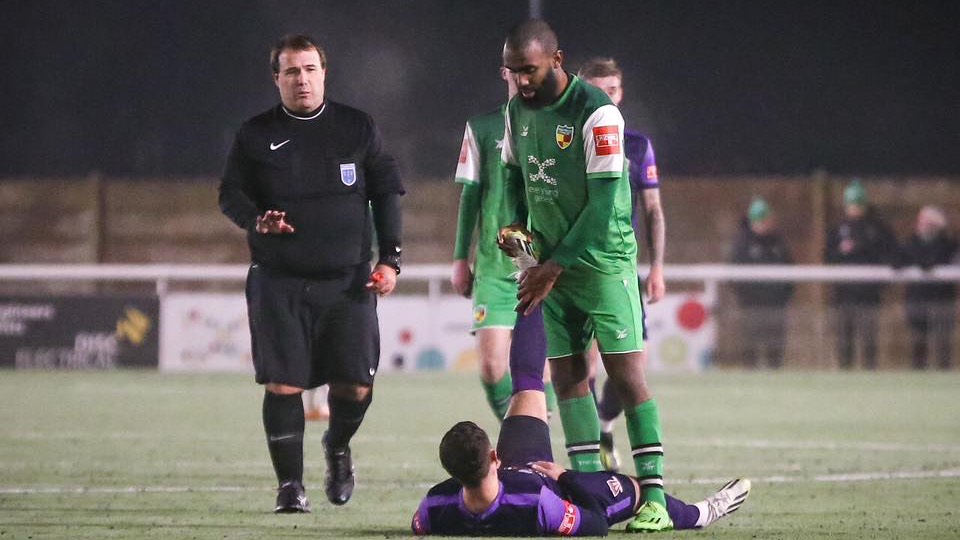As the summer sun shone brightly, we gathered for our August meeting, bringing together our team with a shared purpose: to refine our approach to managing dissent on the field. This meeting was not only an opportunity to reconnect and discuss the challenges we’ve faced but also a chance to equip ourselves with strategies to handle one of the more challenging aspects of officiating—player dissent.
Key Discussions
Our meeting kicked off with a general discussion, allowing everyone to share their recent experiences and insights. This open forum provided valuable context for the topics we later delved into, particularly focusing on dissent, which emerged as a recurring theme in our collective experiences.
Topic of the Month: Understanding and Managing Dissent
The core of our meeting was dedicated to the “Topic of the Month”—dissent. We revisited Law 12, which clearly outlines that a player is cautioned and shown the yellow card if they commit an offense of dissent by word or action. The law’s guidance is straightforward: any form of protest, whether verbal or non-verbal, against a referee’s decision, must be cautioned.
We explored the different forms dissent can take:
- Direct Dissent: This is the more overt form, where players openly question or contest the referee’s decisions with loud or clear gestures. Such behaviour directly challenges the referee’s authority and must be addressed promptly.
- Indirect Dissent: Often subtler, this form includes underhanded comments or discreet gestures aimed at undermining the referee’s control. Despite its subtlety, indirect dissent can be equally disruptive and needs to be managed carefully.
The Impact of Player Dissent on the Game
We then examined the broader impact of player dissent on the game. The disruption of play, escalation of tensions, erosion of referee authority, and negative fan reactions are all significant consequences that can arise if dissent is not effectively managed. These insights underscored the importance of our role in maintaining the game’s flow and ensuring a respectful atmosphere on the field.
Effective Strategies for Managing Dissent
To equip ourselves with practical tools, we discussed several strategies for managing dissent:
- Clear Communication: Using concise verbal communication to explain decisions can prevent misunderstandings and reduce the likelihood of dissent.
- Non-Verbal Signals: Hand signals and body language are powerful tools in conveying decisions and asserting authority without escalating tensions.
- Active Listening: Acknowledging players’ perspectives, even when upholding a decision, can defuse potential dissent.
- Enforce Respect: Setting a tone of respect early in the game is crucial, reminding players of the consequences of dissent.
- Consistency: Consistent application of the rules helps mitigate frustration among players, leading to a smoother game.
The Stepped Approach
We also revisited the “Stepped Approach” from the Respect Programme, a structured method for managing dissent:
- Quiet Word: A subtle yet firm reminder to the player about unacceptable behaviour.
- Involving the Captain: Bringing in the team’s captain or a senior player to reinforce collective responsibility.
- Sanctions: Applying appropriate sanctions as per the Laws of the Game, depending on the severity of the dissent.
Real-Life Scenarios
To bring these concepts to life, we discussed several real-life scenarios where dissent might occur, ranging from overt insults to subtle digs. We analysed these situations, debating the best course of action in each case, and reinforcing our understanding of when and how to apply the strategies we had discussed.
Concluding Thoughts
Our August meeting was not just about discussing dissent but about reinforcing our collective commitment to maintaining the integrity of the game. By understanding the nuances of dissent and equipping ourselves with effective strategies, we are better prepared to handle the challenges we face on the field.
As we move forward, let’s keep these insights in mind and continue to support each other in our roles. Remember, managing dissent effectively not only upholds the spirit of the game but also ensures a better experience for everyone involved—players, officials, and spectators alike.

